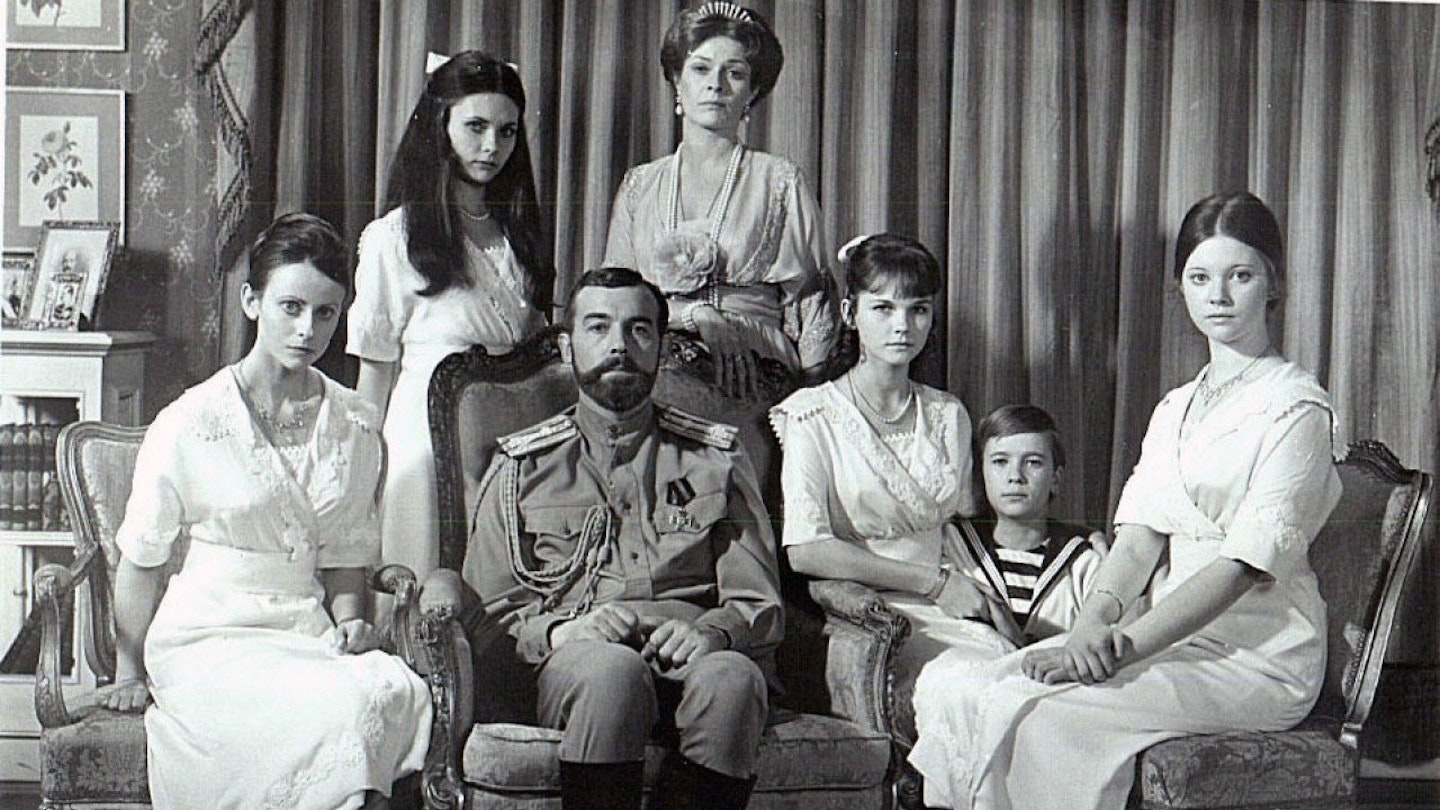Having respectively won Oscars for Lawrence of Arabia and Patton, producer Sam Spiegel and director Franklin J. Schaffner were no strangers to historical epics. Yet, they got the tone of this lavish biopic of the last Tsar so wrong that a fascinating subject was reduced to costumed soap opera. Working from the bestseller by Robert K. Massie, screenwriters James Goldman and Edward Bond not only tried to pack too much detail into 183 minutes, but they also saddled the cast with reams of magniloquent dialogue that veered from the trite to the mawkish and bombastic.
However, the film's greatest fault was its bid to turn an inept ruler and his headstrong wife into tragic victims of domestic strife and the machinations of ruthless opportunists. Nicky and Alex are presented as a devoted couple who would have enjoyed an idyllic existence if they hadn't been burdened with the responsibilities of power and the strain of coping with a haemophiliac son.
But such an approach ridiculously diminishes the role they played in the deaths of millions of their subjects between 1894 and 1917 and the splendid BBC series Fall of Eagles came much closer to capturing Nicholas's Hamlet-like genius for indecision and the prejudicial snobbery of his German spouse, whose insistence on this weak man ruling as an autocrat consigned his fond family to their doom.
Michael Jayston and Janet Suzman struggle to cut through the script's deferential attitude to create credible characters, while the complex agendas of Tom Baker's Rasputin, Michael Bryant's Lenin and Brian Cox's Trotsky are depreciated into accessible clichés. The film deservedly won Oscars for its costumes and the ingenious art direction that Russified the Spanish and Yugoslav locations. But the wilfull focus on a sentimentalised love story rather than the reign's momentous political and military events makes this a dull record of a compelling period.
